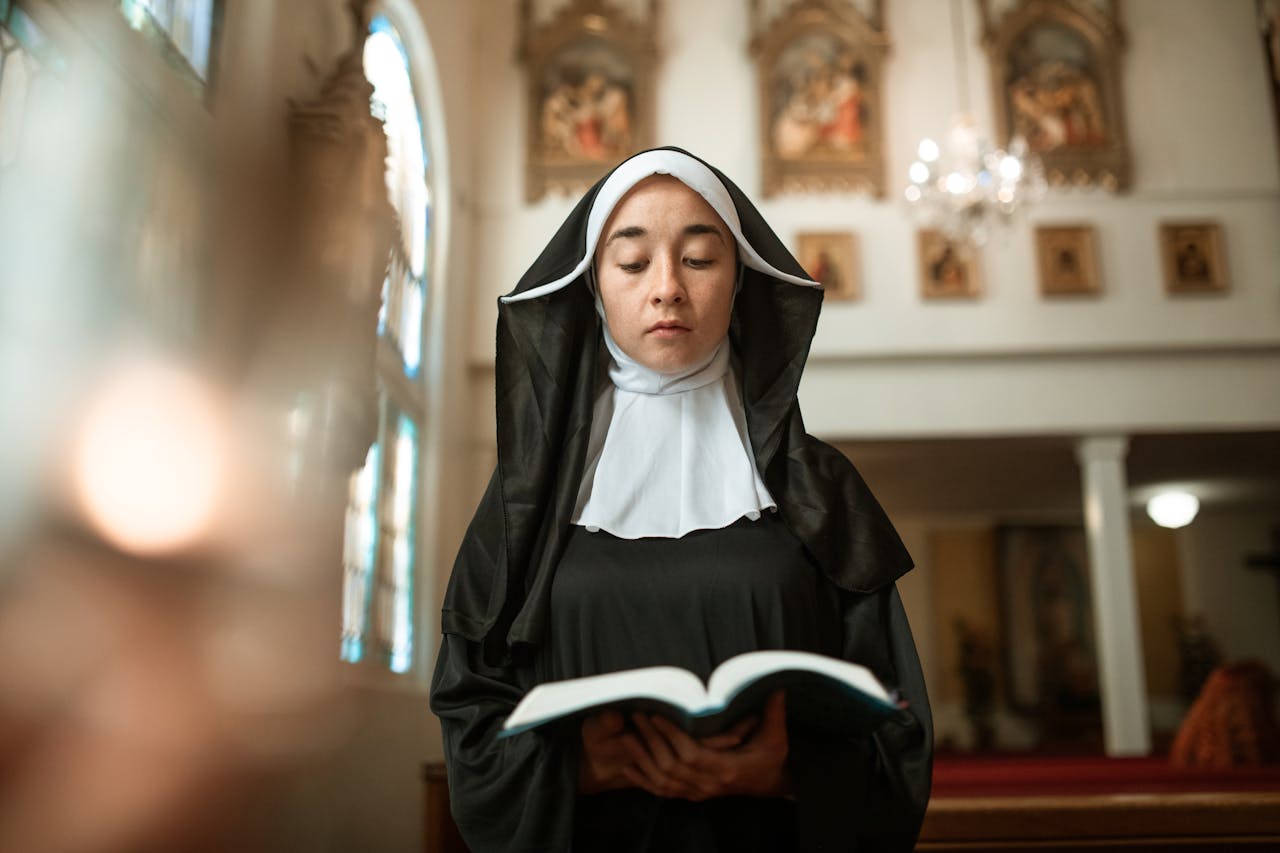

Introduction to Worship and Secular Laws
Contents
- 1 Introduction to Worship and Secular Laws
- 2 Biblical Foundation: Acts 5:29
- 3 Spurgeon’s View on Conscience
- 4 Philosophical Support: Nicholas Wolterstorff
- 5 Historical Insight: Martin Luther King Jr.
- 6 Theological Implications
- 7 Spurgeon on Liberty and Locke
- 8 Socratic Perspective: Examining Laws
- 9 Practical Applications for Christians Today
- 10 FAQ: Worship and Secular Laws
- 11 Conclusion
The tension between worship and secular laws is a significant issue facing Christians today. As believers strive to fulfill their spiritual obligations, they often encounter legal frameworks that appear to contradict their faith. This conflict raises profound questions about the role of the Christian conscience in navigating these challenges.
Understanding the Christian conscience is essential in this context. It serves as a moral compass, guiding believers to discern when to comply with earthly authority and when to stand firm in their faith. The conscience is not merely an internal feeling; it is a reflection of divine law, compelling Christians to obey God rather than man, as stated in Acts 5:29: “We ought to obey God rather than men.” Recognizing this dynamic is crucial for Christians as they engage with contemporary society.
This article will explore various perspectives on the relationship between worship and secular laws, drawing insights from notable figures and texts. We will delve into the thoughts of Charles Spurgeon, who famously described conscience as “God’s sheriff.” His views on civil disobedience will be analyzed alongside the philosophical contributions of Nicholas Wolterstorff, who emphasizes the believer’s moral obligation to resist the state when necessary.
Additionally, we will draw upon historical insights from Martin Luther King Jr., who argued that unjust laws deserve disobedience. As we proceed, these discussions will illuminate the theological implications of civil disobedience and its application in the lives of modern Christians. Join us as we navigate this complex terrain of faith and law, seeking to understand how to worship authentically in a secular world.
Biblical Foundation: Acts 5:29
Acts 5:29 states, “But Peter and the apostles answered and said, We ought to obey God rather than men.” This verse captures a pivotal moment in early Christian history, where the apostles faced persecution for preaching the teachings of Jesus. They were explicitly commanded by the Jewish authorities to cease their preaching. However, their response emphasizes a profound principle: the importance of obedience to God over human authority.
In layman’s terms, this verse asserts that when there is a conflict between what God commands and what human laws dictate, believers should choose to follow God’s will. This principle is highly relevant today as Christians navigate the complexities of secular laws that may contradict their religious convictions. The apostles, determined to share the message of Christ, reflected a commitment to their faith that prioritized divine commandments above governmental restrictions.
This verse has been cited extensively in discussions about the relationship between worship and secular laws, particularly in the realm of civil disobedience. It highlights the belief that God’s directives take precedence over any human regulations. As believers engage in worship practices, they often encounter challenges where their faith may clash with societal norms or legal expectations. Understanding the historical and cultural context of Acts 5:29 reveals the early church’s struggle for religious freedom and the significance of standing firm in faith.
For those interested in a deeper analysis, exploring scholarly interpretations of Acts 5:29 can provide further insights into its implications for contemporary worship practices. This exploration can shed light on how various Christian denominations interpret the balance between obeying God and adhering to secular authority, an ongoing discussion within the Christian community.
Spurgeon’s View on Conscience
Charles Haddon Spurgeon profoundly articulated the concept of conscience, famously stating, ‘Conscience is God’s sheriff.’ This quote encapsulates his belief that conscience serves as an internal guide, directing individuals to discern right from wrong. For Spurgeon, this inner moral compass was not merely a personal inclination but a divine tool, instilling a sense of accountability to God. You can explore more about Spurgeon’s views on the struggles of conscience.
Spurgeon emphasized that conscience plays a vital role in resisting secular laws that may contradict one’s faith. He recognized that many individuals grapple with the notion of sinfulness and the barriers it creates between them and Christ. In his teachings, he argued that true repentance involves acknowledging one’s conscience, as it reveals the spiritual state of the heart. This awareness is crucial, especially when secular authorities impose regulations that conflict with Christian values.
As believers navigate the complexities of modern life, they often encounter laws that challenge their moral convictions. Spurgeon’s perspective encourages Christians to lean on their conscience, which can guide them in making decisions that uphold their faith. For instance, when faced with unjust laws, they are called to act in accordance with their conscience, even if it means practicing civil disobedience. This act of resistance is not only a personal choice but a reflection of their commitment to God’s higher laws. Spurgeon’s insights on civil disobedience further illustrate this point.
By recognizing the significance of conscience, Christians can cultivate a deeper relationship with God. It empowers them to understand that their moral responsibilities extend beyond societal expectations, urging them to follow the dictates of their conscience as a faithful response to divine authority.
Philosophical Support: Nicholas Wolterstorff
Nicholas Wolterstorff, a prominent philosopher known for his work in political philosophy and theology, explores the intricate relationship between conscience and the state in his influential writings. In his 1995 journal entry in Faith and Philosophy, he argues that civil disobedience is a legitimate expression of moral conviction when faced with unjust laws. Wolterstorff emphasizes the guiding role of conscience in ethical decision-making, particularly in the public sphere. He contends that citizens must engage their religious convictions openly, asserting that American democracy should not exclude these perspectives.
Wolterstorff critiques the anti-religious bias inherent in secularism. He believes this bias stifles meaningful dialogue, inhibiting the ability of religious communities to reflect on their values. He advocates for a model of dialogical pluralism, where both religious and secular voices can contribute to public discourse, fostering mutual understanding. This is crucial for maintaining the moral fabric of society, as he posits that human rights are fundamentally rooted in biblical traditions rather than secular ideals.
In light of Wolterstorff’s insights, Christians are encouraged to view civil disobedience through a philosophical lens. The act of resisting unjust laws becomes a moral imperative, grounded in a theistic framework that recognizes the significance of conscience. By embracing their convictions, believers not only align themselves with their faith but also contribute to the broader conversation about justice and rights in society. This philosophical backing reinforces the argument that obeying God often requires disobeying man when the two are at odds, echoing the sentiments expressed by Spurgeon.
Historical Insight: Martin Luther King Jr.
Martin Luther King Jr. was a pivotal figure in the civil rights movement, advocating for social justice through the lens of moral responsibility and civil disobedience. In his famous “Letter from a Birmingham Jail,” King articulates that “an unjust law is no law at all”, a sentiment rooted in the belief that laws must align with moral law or God’s law. This distinction between just and unjust laws is foundational to his philosophy. King emphasizes that any law that uplifts human personality is just, while those that degrade it—such as segregation statutes—are unjust.
King’s perspective positions civil disobedience as a moral obligation, where individuals must resist laws that perpetuate oppression. He explains that freedom is never voluntarily given by the oppressor but must be demanded by the oppressed. This resonates with his assertion that “justice too long delayed is justice denied”, highlighting the urgency for action against injustice.
When comparing King’s views to those of Charles Spurgeon, some similarities and differences emerge. Both figures recognized the importance of standing against injustice, with Spurgeon also advocating for moral principles grounded in faith. However, King’s theology was more liberal, often reinterpreting traditional Christian doctrines to align with social needs, while Spurgeon upheld orthodox beliefs that framed his understanding of righteousness. While both leaders championed the cause of justice, their theological foundations shaped their approaches to civil disobedience differently, reflecting a divergence in their respective contexts and beliefs.

Theological Implications
The theological basis for civil disobedience has deep roots in the Christian tradition, emphasizing the moral obligation to uphold God’s law above human legislation. This principle is notably illustrated in Acts 5:29, where the apostles declare, “We ought to obey God rather than men.” This scripture affirms that when secular laws conflict with divine commandments, the Christian conscience must prioritize obedience to God as a higher authority.
Throughout history, figures like Martin Luther King Jr. have echoed this sentiment. King articulated that laws which degrade human personality are unjust, citing St. Augustine’s assertion that “an unjust law is no law at all.” His perspective reinforces the belief that Christians have a moral responsibility to resist unjust laws, particularly those that oppress. For example, King emphasized that segregation laws not only contradicted moral law but also distorted human dignity.
Additionally, the theological concept of the imago Dei, which posits that every individual is created in the image of God, serves as a foundation for resisting injustice. This understanding informs the Christian conscience by instilling a sense of duty to protect the inherent worth of all people. When confronted with laws that violate this principle, Christians are called to act, much like Spurgeon did in his stance against slavery and social injustices, advocating for a faith that actively engages with societal issues.
Thus, theology profoundly shapes the Christian response to secular laws, encouraging believers to engage in acts of civil disobedience when necessary, embodying a faith that seeks justice and righteousness in the world.
Spurgeon on Liberty and Locke
Charles Spurgeon, a prominent preacher of the 19th century, held a nuanced view of John Locke’s ideas regarding liberty. He recognized Locke’s significant contributions to political philosophy, particularly in distinguishing the roles of civil government and the church. Locke argued that civil government is designed to protect individual rights, such as life and liberty, while the church focuses on spiritual matters. This separation resonates with Spurgeon’s belief that true liberty is found in Christ, transcending mere political freedoms.
Spurgeon famously stated, “Locke spoke liberty, but Christ gives it.” This quote encapsulates his perspective that while Locke articulated a vision of freedom rooted in natural rights, it is ultimately the teachings of Christ that offer a deeper, more profound sense of liberation. Spurgeon understood that human authority could only provide a semblance of freedom, but the true liberation of the soul comes from a relationship with God.
Moreover, Spurgeon interpreted Locke’s arguments through a Christian lens, emphasizing that the government should not interfere in matters of faith. Locke’s assertion that the magistrate’s role does not extend to the salvation of souls aligns with Spurgeon’s advocacy for religious autonomy. This perspective highlights the importance of individual conscience in matters of worship, suggesting that coercion in religious belief is both ineffective and contrary to genuine faith.
In essence, Spurgeon’s view on Locke underscores the Christian understanding of liberty as a gift from Christ, one that empowers believers to engage with secular authorities while maintaining fidelity to their faith. This interpretation serves as a call for Christians to navigate the complexities of civil obedience and divine allegiance with wisdom and conviction.
Socratic Perspective: Examining Laws
Socrates famously proclaimed, “An unexamined life is not worth living.” This profound statement urges individuals to critically reflect on their actions, beliefs, and the systems that govern their lives. In the context of governance and morality, Spurgeon adapted this sentiment to assert, “An unexamined law is not worth obeying.” Together, these quotes highlight the necessity of scrutinizing both personal choices and societal rules.
Examining laws is vital for a just society. Laws should not be accepted blindly; instead, their origins, purposes, and implications must be questioned. In doing so, individuals can discern whether these laws align with ethical standards and the teachings of Scripture. History has shown that many laws, once deemed just, were later found to be unjust or oppressive. This reflects the importance of evaluating legal systems through a moral lens.
Spurgeon’s emphasis on conscience aligns closely with Socratic thought. When an individual critically assesses a law, they engage their conscience, determining its righteousness. If a law contradicts divine principles or fosters injustice, it becomes an obligation to resist it. This notion resonates with the understanding that Christian conscience is not merely a passive acceptance of authority but an active engagement with divine truth.
In practical terms, this critical examination can equip believers to stand against laws that contradict their faith. As Christians navigate an increasingly complex world, the call to question and evaluate legal frameworks remains as relevant today as it was in ancient times. By doing so, they honor their commitment to God while fulfilling their responsibilities as citizens. For further insights on the philosophical underpinnings of liberty and the role of conscience, one can explore John Locke’s arguments regarding the separation of church and state, which emphasize the importance of individual conscience in matters of faith.
Practical Applications for Christians Today
Modern Christians face the challenge of navigating their faith in a world where secular laws and divine commands often intersect. Drawing from biblical teachings and historical examples of civil disobedience, believers can find practical ways to embody their faith while confronting injustice.
Firstly, Christians should cultivate a well-informed conscience. Engaging with Scripture and prayer equips believers to discern when to obey earthly laws and when to resist. For instance, the actions of Martin Luther King Jr. during the Civil Rights Movement serve as an example. His Letter from Birmingham Jail reminds us that a just law aligns with moral law.
Secondly, Christians can participate in peaceful activism. Figures like Shane Claiborne and Symon Hill demonstrate how collective action can address societal issues. By joining grassroots movements, Christians embody the law of love and promote justice.
Furthermore, maintaining respect for governing authorities is crucial. As Paul emphasizes, Christians should strive to be law-abiding citizens, reflecting God’s character. However, when laws contradict God’s commands—such as those that devalue human dignity—civil disobedience becomes necessary. Russell Moore highlights this moral responsibility, urging believers to act according to their faith when faced with injustice.
In conclusion, balancing obedience to God and secular laws requires wisdom and discernment. Christians are called to assess each situation carefully, ensuring their actions align with love and righteousness. By examining their motivations and remaining prayerful, they can navigate the complexities of faith and citizenship in today’s world.
FAQ: Worship and Secular Laws
As Christians strive to navigate the complex relationship between worship and secular laws, several questions often arise. Here are some common inquiries along with clear answers to help guide believers in their faith journey.
1. When should Christians disobey secular laws?
Christians should disobey secular laws when those laws directly contradict God’s commands. As Peter and Paul affirmed, obedience to God takes precedence over human authority when moral values are at stake.
2. How can believers respond to unjust laws?
Believers can respond to unjust laws through peaceful civil disobedience, inspired by figures like Martin Luther King Jr. and contemporary activists such as Symon Hill and Helen Burnett. Actions should be rooted in love and aimed at restoring justice while being prepared to face potential consequences.
3. Is it possible to respect government while disobeying unjust laws?
Yes, Christians can respect government authority even while disobeying unjust laws. Paul emphasized the importance of good citizenship, showcasing that faithful disobedience can serve as a testimony of one’s faith.
4. What role does conscience play in civil disobedience?
Conscience is crucial in civil disobedience. As Spurgeon noted, Christians must evaluate their actions against Scripture and ensure their motivations are rooted in love and righteousness.
5. How can Christians discern when to act?
Christians should pray for wisdom and discernment, seeking guidance from Scripture and the Holy Spirit. Not every disagreement with government necessitates civil disobedience; careful evaluation of the situation is essential.

Conclusion
In exploring the intersection of worship and secular laws, we have delved into the profound implications of the Christian conscience. The teachings of figures like Martin Luther King Jr. and contemporary activists such as Symon Hill and Helen Burnett show that modern Christians often find themselves called to act against unjust laws. Their actions resonate deeply with biblical precedents set by figures like Daniel, Shadrach, Meshach, and Abednego, who prioritized their devotion to God over earthly authorities.
We examined the biblical foundation in Acts 5:29, emphasizing that believers are called to obey God rather than men when conflicts arise. Furthermore, we discussed the critical role of conscience, as articulated by Spurgeon, who referred to it as God’s sheriff, guiding Christians in their moral decisions.
The relationship between worship and secular laws is complex, requiring discernment and a commitment to act justly. Christians are urged to evaluate their motivations carefully, ensuring they align with the principles of love and justice rooted in their faith. As believers navigate their dual citizenship in both the Kingdom of God and earthly governments, understanding the Christian conscience becomes paramount.
Ultimately, the call to worship transcends mere ritual, becoming an active expression of faith that challenges injustice and upholds the dignity of all individuals. This profound interplay invites Christians to live out their beliefs with courage and integrity.
Contact us and grow with us. Connect with us on
Youtube, Facebook, and LinkedIn. We hope to see you soon!